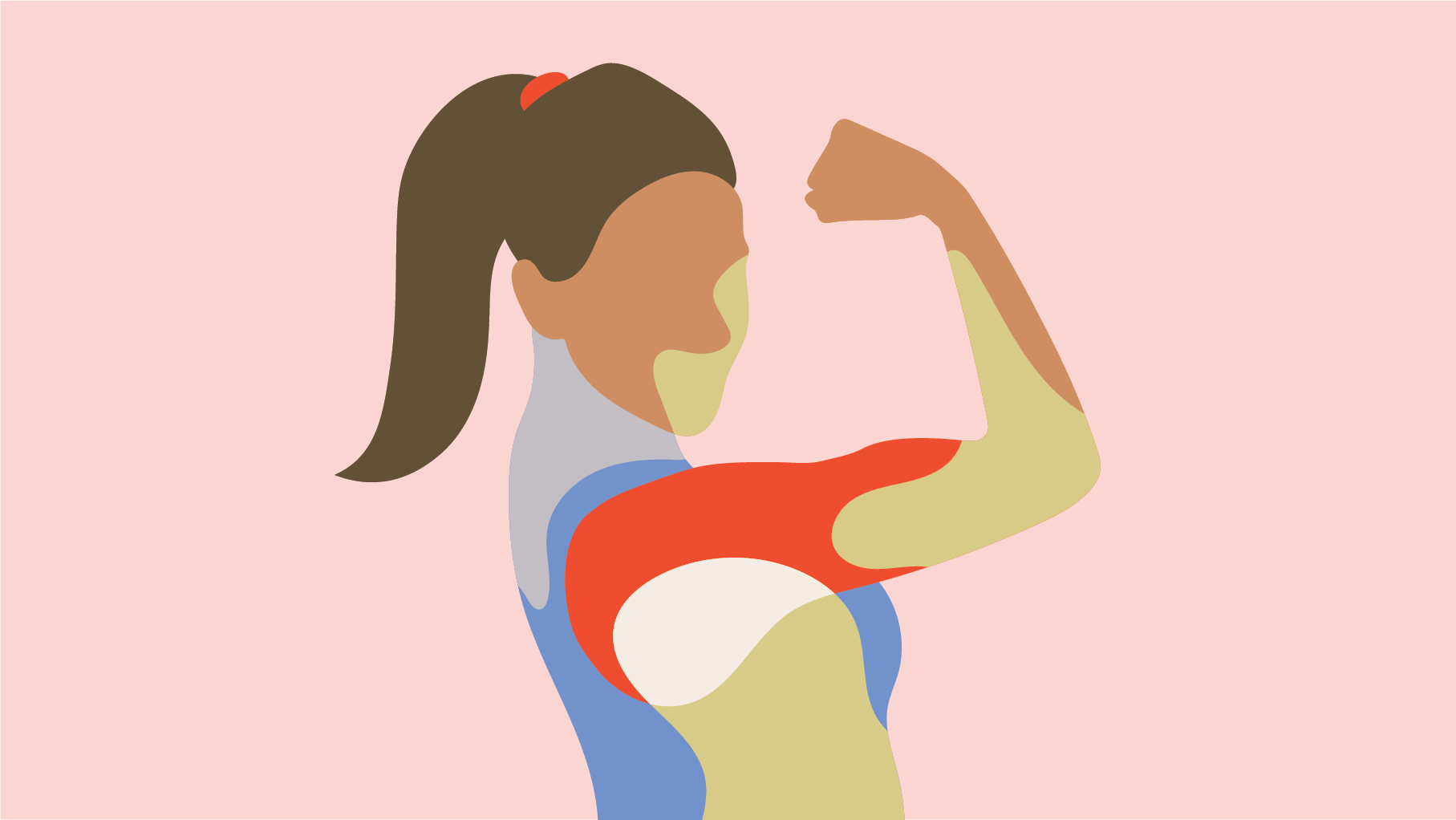Living With 'HER2-Low' Breast Cancer
Resources, expertise, and survivor support to help you after a diagnosis
To help you along the way in the weeks and months after a ‘HER2-low’ breast cancer diagnosis, SurvivorNet has developed this guide called Living With HER2-Low Breast Cancer.
The guide is designed to help you navigate some of the challenges that may pop up as you plan for and undergo treatment for this new classification of breast cancer.

HER2-Low Defined
Understanding your diagnosis — What is 'Her2-low' breast cancer?
“HER2-low” is a relatively new classification of breast cancer. HER2 is one of three main receptors that doctors test women who have been diagnosed with breast cancer for to help determine treatment.
Previously, breast cancers were only classified as either HER2-positive and HER2-negative.
Recently, however, researchers have looked to further expand this definition to include patients that have a minimal amount of HER2 expression but do not meet the classic definition for HER2-positive tumors.
This group has been called HER2 “low” and is very important as it represents approximately 50 percent of all patients with breast cancer.
+ Expand and Learn More...
This new classification of breast cancers, “HER2-low,” is making a significant buzz in the world of breast cancer research.
This is because these cancers can be targeted with a recently approved drug known as Enhertu (Trastuzumab deruxtecan).
Enhertu is effective for appropriate patients, and can greatly improve their quality of life and help them live longer. The recent data from the DESTINY-BREAST04 trial showed an improvement in progression free survival and overall survival in patients treated with Enhertu compared to physician’s choice chemotherapy alone in patients with metastatic breast cancer. Therefore, it is exceedingly important to accurately identify HER2-low patients who will benefit from this therapy and manage them whilst they receive their treatments.
Handling Your Diagnosis
I have breast cancer — now what? Handling a new diagnosis
At this point, you may have already received one or several types of systemic treatment for your breast cancer. If you’re using this guide — your doctor has likely told you your breast cancer can be classified as HER2-low … but what does this mean for you?
You’ll get a lot of information in these initial meetings, so you may be feeling confused, frustrated, or any number of other emotions.
We understand this is a hard time. In this section of Living With HER2-Low Breast Cancer, we’ll go over how to keep track of all the new information you’re getting — and offer some guidance on how to cope with emotions that can feel overwhelming.
+ Expand and Learn More...
There are a few basic things you can do to help manage the process when you first learn of your cancer diagnosis. Dr. Heather Yeo, a colorectal surgeon at Weill Cornell and an advisor to SurvivorNet, has these tips for patients:
- Have someone come with you to the doctor
It is important to bring a close friend or family member not only to support you, but also to help you understand and digest all the information.
- Take notes
Writing down what you hear can help you focus and create a record of the information so you can refer to it later on.
- Don’t be afraid to get a second opinion
Your doctor won’t be offended if you get a second opinion. It is extremely important to go through the process with a doctor you trust — and make sure you’re getting the best care possible with a doctor you feel comfortable with.
+ Expand and Learn More...
“How am I going to get through this?” It is often one of the first questions a person will ask after a cancer diagnosis.
“My advice is to take one day at a time,” says Dr. Susan Parsons, Director of Survivorship Care at Tufts University, “and be kind to yourself.”
Survivors also tells us it’s key to ask for the support you need — both mentally and physically. There is life after cancer so the goal is to keep hopeful and strong, and cut yourself some slack.
Preparing for Treatment
Assembling your treatment team
It can be challenging to find a doctor and decide where to get treatment. When you’re stressed, it’s easy to overlook some options.
We’ve consulted several experts in the field to get advice about planning during this early stage of the treatment process and to learn why it’s incredibly important to establish a trusted doctor-patient relationship.
+ Expand and Learn More...
“What would you do if someone in your family got cancer?” We put that question to some of the most renowned cancer doctors in the country.
National Cancer Institute Chief of Surgery Dr. Steven Rosenberg recommends seeking out multiple professional opinions to confirm a diagnosis and figure out the options.
Highly respected doctors sometimes disagree on the right course of treatment, and advances in genetics and immunotherapy are creating new options.
With HER2-low breast cancer in particular, doctors may have differing opinions on how to proceed with treatment.
+ Expand and Learn More...
Although there will always be limitations on how much time a doctor can spend with any given patient, the doctor-patient relationship is extremely important after a cancer diagnosis.
You’ll want to make sure you are working with a doctor you trust, who will respect your opinion and keep you informed about all of the treatment options for your particular diagnosis.
Dr. Nina Shah, a hematologist at UCSF Medical Center, stressed the importance of patients feeling comfortable enough to voice concerns to their doctors.
“It’s on us to make sure that we are emotionally available to the patients, and as available as we can be with our time, although there are always limitations there,” Dr. Shah explained.
Part of the doctor-patient relationship involves the patient feeling seen and heard — and advocating for themselves where they see fit.
Treatment Options
Understanding treatment options
The treatment approach for breast cancer varies greatly depending on your individual disease. In this section of Living With HER2-Low Breast Cancer, top oncologists explain the different treatment options and why a personalized, tailored approach is so important.
Treatment for HER2-low breast cancer may include the following approaches (or a combination of several):
- Surgery
- Chemotherapy
- Radiation
- Targeted drugs
+ Expand and Learn More...
In addition to the type of breast cancer you have, several other factors must be taken into consideration to determine the best treatment approach — like how aggressive the cancer is and whether it has spread.
Some patients with early stage disease may opt for a lumpectoym (a surgery that removes just the cancerous tissue from the breast), while others may consider a mastectomy (a surgery that removes the entire breast).
“Depending on the size and other features such as family history, a patient may opt for more aggressive surgery,” Dr. Elizabeth Comen, a medical oncologist at Memorial Sloan Kettering Cancer Center, said.
“So even for an early, stage one breast cancer, a woman may elect a mastectomy to remove her whole breast. Then, once that surgery happens, a pathologist is able to look at that tissue underneath the microscope and decide what treatment a woman needs after the surgery has removed it.”
+ Expand and Learn More...
There are many factors that go into determining which breast cancer treatments a patient will be given, and what order those treatments will be given in.
Dr. Elisa Port, Chief of Breast Surgery at Mount Sinai Health System, explained to SurvivorNet that there are certain subtypes of the disease (including HER2-positive breast cancer) that sometimes benefit from having treatment first and then surgery.
The majority of other types of breast cancer will undergo surgery first, and then doctors use the information they learn during surgery to determine what additional treatment is needed.
“It’s very tailored, personalized precision medicine approach, for not only the person, but also the tumor,” Dr. Port said.
Women who are diagnosed with HER2-positive breast cancer have high levels of the HER2 protein on the outside of their cancer cells.
For patients with early-stage disease, meaning they have relatively small tumors and no lymph involvement, a number of HER2-directed therapies have dramatically changed the landscape. These include drugs like Herceptin and Perjeta.
Those who have metastatic HER2-low breast cancer may be eligible for a new drug called Enhertu.
Enhertu is an antibody-drug conjugate. The antibody portion of the drug binds to HER2 proteins and delivers a toxic drug called deruxtecan directly into the cancer cells interfering with DNA replication of the cancer cell.
Enhertu is effective in extending the survival of metastatic breast cancer patients. It is, however, not a cure.
Chemotherapy FAQ
Chemotherapy, hair loss, wigs: Answers to common chemo questions
If you ultimately receive Enhertu as part of your treatment plan, you may be worried about a number of potential problems — from how you’ll feel mentally to the physical side effects and if you’ll be able to continue working.
We consulted experts to break down common side effects, how long they last, and plans you can make with your doctor to help mitigate them.
+ Expand and Learn More...
Common side effects for patients receiving Enhertu include but are not limited to:
- Hair loss
- Low blood counts
- Diarrhea
- Nausea
- Fatigue
- Cough
There are a lot of myths about how chemotherapy impacts people’s lives. It’s sometimes assumed that while undergoing chemotherapy you’ll be restricted to your home, and unable to move around but this is certainly not the case in many situations, Dr. Marleen Meyers, an oncologist at NYU Perlmutter Cancer Center, told SurvivorNet.
Many people can continue to work through treatment and Dr. Meyers encourages her patients to exercise, even if it’s just a walk. It can make a huge difference when dealing with fatigue, a common side effect of chemotherapy.
There are also treatments to help with the side effects of chemotherapy. Many medications are available for treating nausea and vomiting as well as anemia.
+ Expand and Learn More...
For some people, scalp-cooling devices may be able to help prevent hair loss. For others, hair loss may be inevitable — and that can lead to a lot of anxiety.
While many survivors embrace their temporary looks, others really struggle with the idea of people seeing them without hair. For women especially, hair is often very much a part of identity.
There are plenty of options available, including some created by cancer survivors, to help keep you comfortable during this time — including wigs, head wraps, and hats.
+ Expand and Learn More...
Many people going through cancer treatment feel a sense of dread associated with the thought of losing their hair.
Such a drastic physical change may lead to anxiety and sleepless nights.
Patients can speak to their caregivers to see if any interventions are possible, and should also look into products that are specifically made for people dealing with temporary hair loss — like wigs, head wraps, and more.
Talking about these anxieties can help, but it’s also OK to say so if you are not comfortable discussing it, Psychiatrist Dr. Samantha Boardman stressed.
Diet, Exercise & Stress Management
Living with cancer: Diet, exercise & stress management
You may be wondering if you’ll have to make any major changes to your lifestyle while going through cancer treatment — and once you finish and move onto life as a survivor.
That will largely depend on your diagnosis and what type of treatment you are undergoing. Different people manage treatment in very different ways.
This section our Living With HER2-Low Breast Cancer series focuses on everyday health basics — like diet, exercise, and stress management — during and after treatment.
+ Expand and Learn More...
When undergoing chemotherapy, the main diet goal is to maintain weight.
Krista Maruschak, a registered dietician at the Cleveland Clinic, says that eating six smaller meals a day and packing some extra calories and proteins into these meals when possible can make a big difference.
Extra calories doesn’t mean you should have a bag of potato chips with every meal. Things like nuts, dairy products, olive oil, avocados, and hummus are all healthy fats that will do the trick.
+ Expand and Learn More...
Dr. Marleen Meyers, a medical oncologist at NYU Perlmutter Cancer Center, told SurvivorNet that people living with cancer should focus on a healthy diet rather than trying to get their nutrition through supplements.
“A very important issue to remember…is that they are not FDA-controlled, which means that you don’t really know what you’re getting,” she explained.
Getting stress under control is another part of living a generally healthy lifestyle. Many experts in the cancer field have shared that patients tend to do better when they are less stressed.
Yet, this is easier said than done when living with cancer. One approach to managing stress that many people living with cancer embrace is meditation.
When dealing with a journey that can be nerve-wracking and very emotional, it can really help to take some time to quiet the mind. To help you get started, we’ve included the below quick & simple guided meditation.
Fertility Options
Fertility options for women with breast cancer
Many young women diagnosed with cancer are concerned about how it will impact their ability to have a family in the future. Treatments like chemotherapy and radiation can harm eggs and reduce a woman’s chances of conceiving.
However, there are many options for fertility preservation, including freezing eggs or embryos for future use.
In this section of Living With HER2-Low Breast Cancer, we break down fertility options and why it is important to speak to your doctor as soon as possible if family planning is important to you.
+ Expand and Learn More...
There are a variety of fertility preservation options for women who are diagnosed with breast cancer.
While these preservation techniques may not be an option for all young women with breast cancer, it’s important to speak to your doctor to learn what options may be available to you.
“Time is always of the essence when we see patients who have cancer,” Dr. Jaime Knopman, Director of Fertility Preservation at CCRM NY, told SurvivorNet.
“In our own practice, we usually see the patient the same day, if not the next day [after a diagnosis] because the sooner we start, the sooner that patient can then go on and do their treatment.
“A lot of the success comes down to how old you are at the time you froze, and the quality of the lab in which your eggs or embryos were frozen in,” she added.
Survivor Stories
Inspiring breast cancer survivors share what got them through treatment
When it comes to coping with hardships that come with a cancer diagnosis, patients turn to many different outlets.
Here at SurvivorNet, we’ve spoken to dozens and dozens of breast cancer survivors about the unique approaches they took to get themselves through the tough times.
This section of Living With HER2-Low Breast Cancer focuses on a range of different ways to stay positive — from faith and spirituality to finding humor in the struggle.
More Resources
Living with HER2-low breast cancer
You’ve made it to the end of our Living With HER2-Low Breast Cancer guide. We hope you were able to find some helpful information and some of the support you are looking for as you continue your cancer journey.
Be sure to check out SurvivorNet’s designated section on breast cancer to learn even more about the basics of your disease, the specific type you have, and what you can expect during the treatment process — and beyond.
We also provide regular updates on any new treatment options as well as inspiring survivors stories.
At SurvivorNet, we’re here to help survivors like you navigate the complex world of treatment and living with cancer.
Thank you for being a part of the family!





















